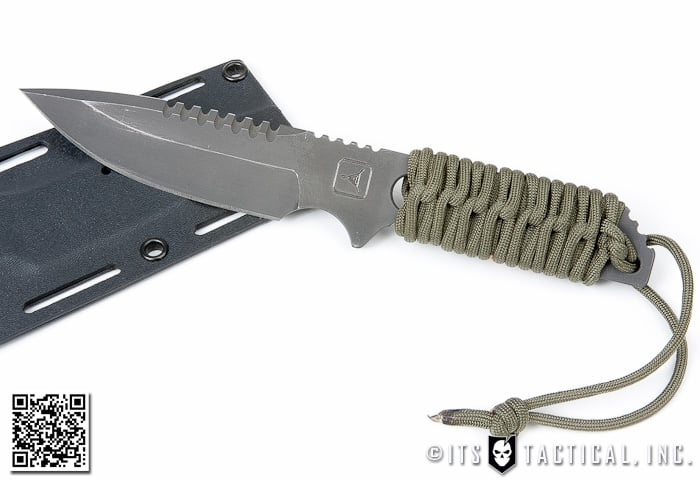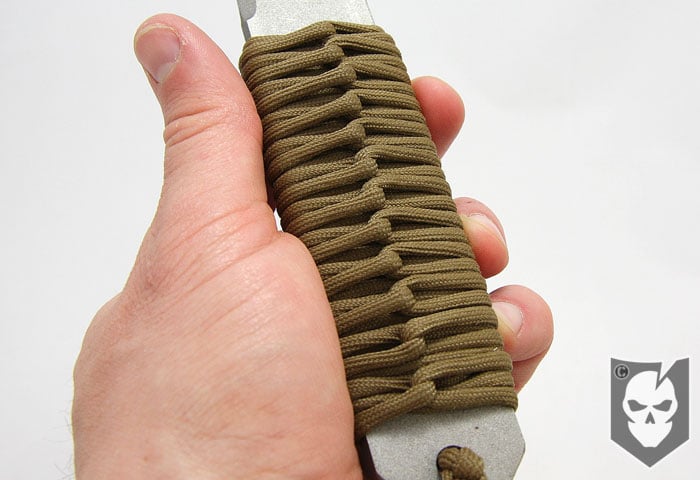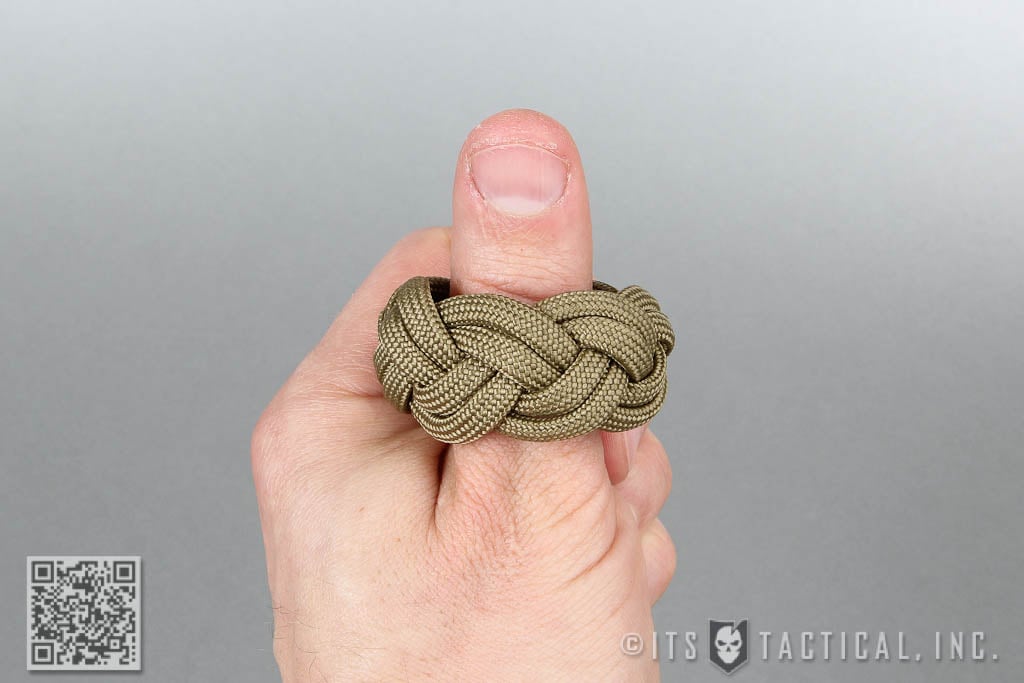Knot of the Week – Strider Knives / TAD Gear DUK Paracord Wrapping
Knot of the Week – Strider Knives / TAD Gear DUK Paracord Wrapping
Have you always wondered how to achieve the technique that Strider uses to wrap their knife handles with paracord? On Today’s Knot of the Week we’ll show you exactly how to do it with a detailed video in HD!
We’ve previously demonstrated this method on a County Comm Breacher Bar, but if left a lot of you asking further questions and if we could demonstrate it on a Strider Knife. Using a Strider/Triple Aught Design DUK we’ll show you how you can utilize this wrapping on anything that has at least two holes drilled and optionally a lanyard hole as well.
You can apply this wrapping principle to just about anything you want to and we hope you find something of your own to wrap!
Strider Knives / TAD Gear DUK Paracord Wrapping » Decorative
(Strength: 3/Secure: 3/Stability: 3/Difficulty: 3)
Please refer to our Knot of the Week introduction post for a description of what these ratings mean.
We’d highly recommend you have a vise to hold your knife while you wrap the outer layer of the pattern. In fact, its almost mandatory, as without a tight wrap on this section it may loosen up with use.
This paracord wrapping will require two separate lengths of 550. A gutted section being around five feet and another right around 15 feet. Another benefit to this wrapping is that you’ll have around 15 feet of paracord at your disposal should you need it.
If you’re wrapping a knife with this method, do yourself a favor and tape the blade up so you don’t get cut. It will also prevent your knife from getting scratched up in the vise if you don’t have rubber jaws.
Uses:
- Increase the grip of an object
- Storing Paracord
- Decorating an object
Tying Instructions:
- To follow along with these instructions, your object will need to have at least two holes for paracord.
- *Have your two sections of paracord ready (5 foot gutted section and 15 foot section)*
- Starting with the longer of the two sections, find the midpoint of the paracord and double.
- Insert the doubled end in and through the top most hole.
- Pull the doubled end out through the bottom most hole (not the smaller lanyard hole).
- Insert the remaining paracord ends through the loop, creating a girth hitch.
- Tighten up the girth hitch and pull the paracord ends up and out of the way.
- Take the small five foot section of gutted paracord and wrap it tightly, starting above the created girth hitch.
- *The wrapping of the gutted paracord should lock around itself holding tightly*
- Wrap the remaining paracord all the way down and tuck it into itself to lock it down.
- Trim the excess and burn the end, pressing it into the wrapped paracord to bind it.
- *Now return to your new working ends on the longer paracord*
- Where these ends now exit the wrapping, pull them behind to the backside.
- To make the weave/hook pattern, remember right over left then left over right.
- Create the pattern on this side of the handle, ensuring its tightness.
- Bring the paracord to the opposite side and repeat the same pattern *right over left, left over right, tighten*
- Continue this pattern, alternating from one side of the handle to the other, until you’ve reached the bottom.
- Once at the bottom, tie a tight square knot to hold your wrapping in place.
- Feed the ends through the remaining lanyard hole in the handle, flip the handle over and tie a second square knot.
- This effectively locks the wrapping completely and allows you to know work with the remaining paracord.
- You can tie any kind of lanyard knot with the remaining paracord, or if desired, trim the paracord and forgo the lanyard.
- Enjoy!












Discussion